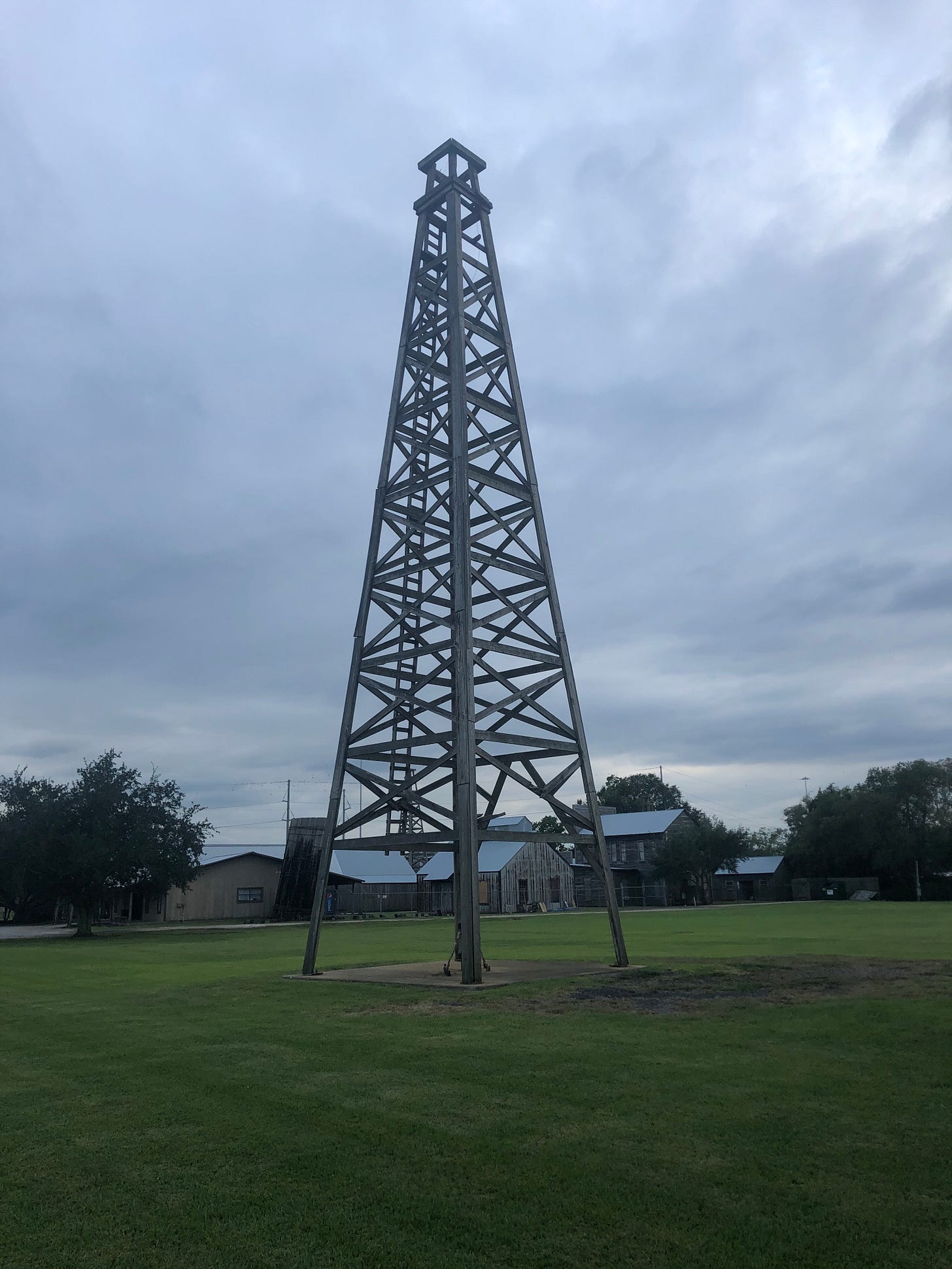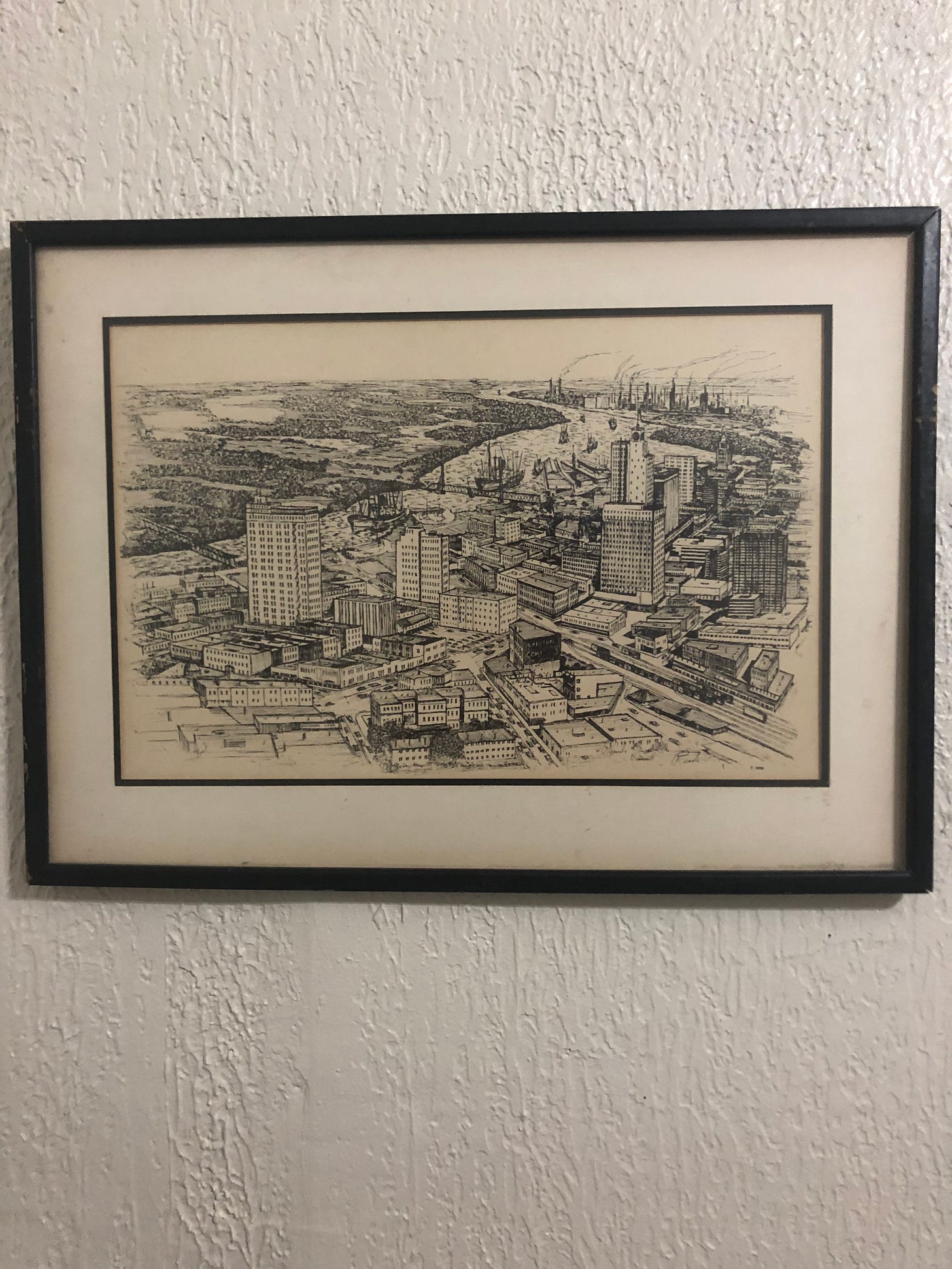It’s tragic and ironic that this newsletter lost its narrative momentum after writing about loss of narrative momentum about two months ago.
How deserted lies the city,
once so full of people!
How like a widow is she,
who once was great among the nations!
She who was queen among the provinces
has now become a slave.
2 Bitterly she weeps at night,
tears are upon her cheeks.
Among all her lovers
there is none to comfort her.
All her friends have betrayed her;
they have become her enemies.
- Book of lamentations
Yes finding a bible in an AirBnB in the south was inevitable
This newsletter is brought to you from Beaumont, Texas where the roads are non existent and everyone wears their masks on the chin.
If you visit a town similar to Beaumont you would inevitably find at least one old store named Boomtown, to remind you that this was once a city of great riches, most likely less than 50 years ago. The sign is usually rusted, in big bold letters and the building is likely empty.
The two major landmarks of boomtown era Beaumont are Spindletop - the first major oil well in south-East Texas that signalled the beginning of the oil boom, and the McFaddin-Ward house - a sprawling mansion owned by the McFaddin family, ranch owners who owned much of the land on which oil was discovered. The appearance of both could not be more different. Spindletop was reconstructed and preserved in late 20th century. It is made of timber that is crooked, warped. Much of foundation and surrounding is rusted. The McFaddin-Ward house became a museum in 1971, the last of the McFaddin’s who lived there left a trust fund to manage the museum. Right next to the mansion are crumbling apartments, most certainly built much later than 1971. The architecture is to say the least not very tasteful and completely removed from the surroundings both then and now.

Spindletop and McFadden-Ward house tell the story of boomtowns in America - one of private wealth and public poverty. I drove around the city looking for where all the wealth from the first major oil well in south east Texas went to and for all I know all the wealth was funneled into McFaddin-Ward house, which might well be the only building in a 2 mile radius that would pass a proper building inspection. The McFaddin’s no longer live in Beaumont and I feel like the same can probably be said of others who made a killing during the boom. Beaumont and Spindletop no longer have any friends.
The irony was not lost on me that this is also the kind of urbanism that sets America apart from rest of the world. Towns collapse every 25-50 years and have to be build up from scratch again - Detroit ‘08, San Francisco 1906…and they collapse again. European towns are preserved in pickle so that the elites among us can LARP to be royalty.
Collapsed American towns feel like they are lamenting the loss of history, even if brief and manufactured. Sometimes this takes the form of LARPing to be a great town with unblemished history, sometimes it takes the form of bigotry and spite directed at new neighbors moving from other towns and countries. The suburb of Beaumont is Vidor, a town that Reddit and locals warn you about because of the presence of white supremacist elements.

The population of downtown Beaumont has fewer McFaddin’s these days and is predominantly black, hispanic and asian immigrants. The largest employer is no longer an oil company but Lamar University and a hospital. I feel like how the town treats its newer residents will determine its future. These are people with actual skin in the game who moved to city with lower cost of living to make it in America, whatever that means now. Cities that provide the basic tools to do that will be rebuild again while the ones that don’t will have to lament longer or LARP to be something that they are not. Mercy to Beaumont will come when it has accepted its fate as a collapsed city.


